
 Flash News
Flash News
He breaks arrest, steals a car and escapes like in a movie, the serial thief from Tirana is caught!
Name/ She deceived clients and took their money, the lawyer is wanted
Criminal group busted, trafficking dogs from Spain to Finland, the 'heads' of the group were Albanians
She escaped drowning in Durres, the 31-year-old English woman speaks: We capsized instantly, my friend was trapped under the vehicle
Due to lack of lawyers/ The hearing for the 'Golden Bullet' is postponed again
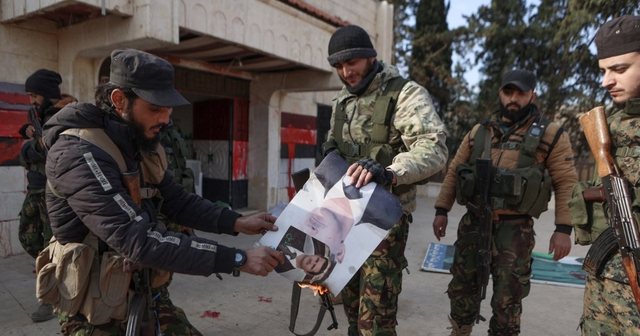
Syria's new rulers have reportedly given senior military posts to several foreign Islamist fighters, including an Albanian from North Macedonia. This has raised fears in the fighters' home countries of a potential export of revolution to their homeland.
In addition to the Albanian of North Macedonian origin, Reuters and AFP, citing sources inside Syria, have reported that a Tajik national and three Chinese Uighurs are among the foreigners promoted to official positions. They have been given the rank of brigadier general and at least one has been promoted to colonel, according to reports that Radio Free Europe/Radio Liberty could not independently verify.
North Macedonian-born Abdul Samrez Jashari – also known as Abu Qatada al-Albani – wrote on a Facebook profile believed to be his that he had attained the rank of colonel. Jashari, 48, is the leader of the “Albani Community,” a militant group made up mainly of ethnic Albanians.
This group is allied with Hayat Tahrir al-Sham (HTS) – the Islamist group designated a terrorist organization by the United States and the European Union – that ousted Syrian President Bashar al-Assad in December 2024. Abdul Jashari has been sanctioned by the United States since 2016. According to the Treasury’s decision, this military advisor was sanctioned as one of the leaders of Al-Nusra, the Al-Qaeda affiliate in Syria, and has helped raise funds for the families of Al-Nusra fighters.
Another foreign fighter appointed colonel was identified by Tajik bloggers close to HTS forces as Saifiddin Tojiboev, a fighter from Tajikistan. REL has not been able to verify the authenticity of reports regarding Tojiboev’s alleged appointment as operations commander and his promotion from major to colonel. A source in the Tajik security sector told REL that the government of that country is aware of the news regarding Tojiboev’s new appointment.
Tojiboev, 41, is a wanted person in Tajikistan and is accused of participating in a foreign conflict, being a member of a terrorist organization, and recruiting fighters for terrorist groups. He is also on the sanctions list of the Central Bank of Tajikistan, which prohibits him from conducting financial activities.
"Tojiboev and his brother went to Syria in 2013 and have been participating in military conflicts there since then ," a source in Dushanbe told REL. "Tojiboev has also recruited several Tajik citizens to join terrorist organizations."
Tojiboev was a member of the Islamic Renaissance Party of Tajikistan (IRPT), a once-popular movement in Dushanbe that was banned and declared a terrorist organization in 2015. The party has denied the terrorism charges. HTS has yet to officially make a public statement about the appointment of foreign fighters. The Islamist group has pledged to pursue moderate policies on women's rights, national reconciliation, and relations with the international community. HTS is also seeking to create a professional army, including members from various militant factions allied with it.
HTS includes a large number of fighters from Russia, Central Asia and the Balkans. Most of them went to Syria after the extremist group Islamic State (IS) declared a caliphate in parts of Syria and Iraq in 2014. In their home countries, many of these fighters are seen as potential threats to national stability and security. Adrian Shtuni of the International Counterterrorism Center told Radio Free Europe in late 2024 that he does not believe that Albanian fighters will now have any interest in returning to their countries, even after the fall of the Assad regime.
"I'm not sure they would want to return, as these people are focused, have a jihadist background, have risked their lives for their ideological goals, which they have not hidden," he stated, adding that some of them may have ambitions for positions in the new government in Syria.
Meanwhile, in December 2024, when videos showing Tajik militants in Syria circulated on social media, a source close to security forces in Tajikistan, who wished to remain anonymous, said that Dushanbe was growing nervous about its citizens' participation in foreign wars.
"They may one day return to Tajikistan and try to cause serious trouble," the source said.
In recent years, governments in Central Asia have repatriated hundreds of their citizens – family members of IS fighters – from Iraq to Syria, helping them reintegrate into “civilian life”. Among the countries that have repatriated citizens are Kosovo and Albania. According to experts, there are still thousands of foreign fighters in Syria. Albanians are believed to make up only a small proportion of the foreign fighters. HTS itself and allied groups are believed to have around 10,000 fighters in total.
It has previously been reported that around 100 Kosovars remain in Syria and Iraq. Governments are concerned that the fighters could try to bring the HTS ideology or Islamic revolution to their home countries. Aaron Zelin, who is the author of a book on HTS - The Age of Political Jihadism: A Study Of Hayat Tahrir al-Sadr - told Radio Free Europe that the appointments do not suggest that Syria's new rulers, led by Ahmed al-Sharaa, formerly known as Abu Mohammed al-Golani, have any agenda beyond Syria.
“This is an attempt by Golan and HTS to make sure that these people follow orders from the Syrian state and now they cannot act independently now that the war is over, or is on the verge of ending ,” said Zelin, who is a senior fellow at the Washington Institute for Near East Policy.
He said that Sharaa is considering the possibility of granting Syrian citizenship to foreigners who have lived in the country for a certain period of time and supported HTS in the fight against the Assad regime.
"The Golan is trying to make them Syrian. It is better for them to integrate and follow the new role of HTS than to act independently, or at least that is how they see it," Zelin said./ REL
Latest news


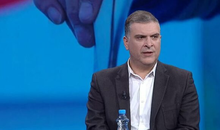
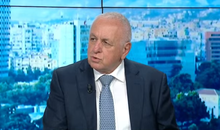
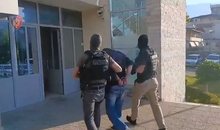
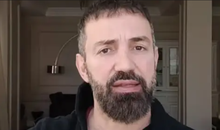

EUROPOL: Minors increasingly targeted by terrorist propaganda
2025-06-03 15:04:56
Kindergarten in Gramsh reopens where children were poisoned with salmonella
2025-06-03 14:59:16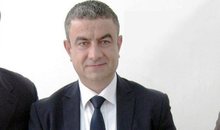

OECD: Global economy heading for weakest growth since Covid-19
2025-06-03 14:35:26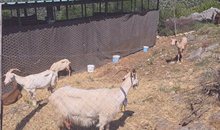
A farm in Postribë, Shkodra, is quarantined, small livestock infected,
2025-06-03 14:21:50
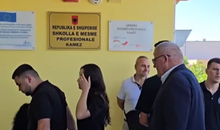
74-year-old from Kamza, the oldest high school graduate in the English exam
2025-06-03 13:59:30
The average salary in Kosovo reached 639 euros in 2024
2025-06-03 13:49:00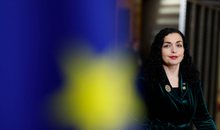
Osmani invites parties to consult on the date of local elections
2025-06-03 13:41:33
Name/ She deceived clients and took their money, the lawyer is wanted
2025-06-03 13:25:24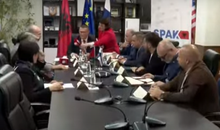

He hit and killed a 59-year-old man and fled, the young man is wanted
2025-06-03 12:58:29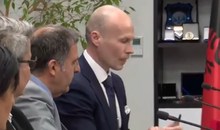
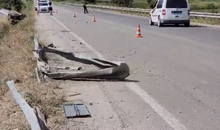
Two cars collide in Bulqiza, drivers injured
2025-06-03 12:34:46
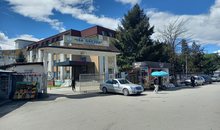

15 people arrested for cyber fraud and misuse of bank cards in Gjilan
2025-06-03 12:02:41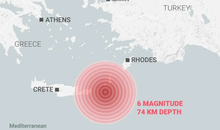
Greece and Turkey hit by earthquake
2025-06-03 11:49:08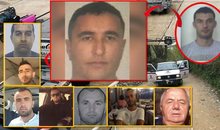
Due to lack of lawyers/ The hearing for the 'Golden Bullet' is postponed again
2025-06-03 11:36:52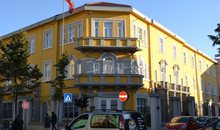

More than half of foreigners in Serbia are Russians
2025-06-03 11:15:59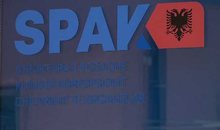
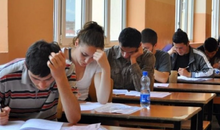
Scandal repeats, English exam thesis leaked
2025-06-03 10:46:54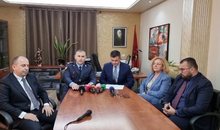

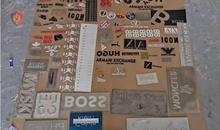
They printed fake logos of well-known brands, 4 arrested, two others wanted
2025-06-03 09:42:58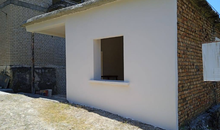
A verbal agreement by Rama prompted the contested interventions in Spaç
2025-06-03 09:23:32


Horoscope, what do the stars have in store for you today?
2025-06-03 08:34:30

Temperatures up to 31 degrees Celsius, weather forecast for this Tuesday
2025-06-03 08:09:06
Morning Post/ In 2 lines: What mattered yesterday in Albania
2025-06-03 07:51:10


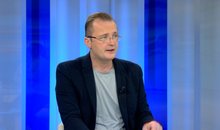
Convinced DP candidate: Tirana district is opening, MPs' order changes
2025-06-02 21:42:53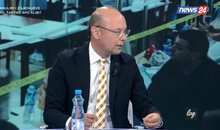

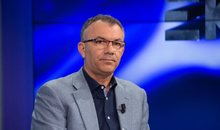
Cara: At the head of the state is a party that was not voted for by Albanians
2025-06-02 21:16:53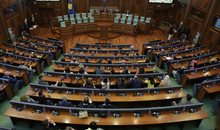
The constitution of the Kosovo Assembly fails for the 25th time
2025-06-02 21:10:46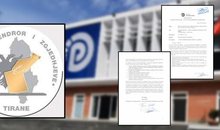
"130 thousand unused ballots", CEC responds to the DP
2025-06-02 20:51:02
Italian professor who insulted Giorgia Meloni's daughter attempts suicide
2025-06-02 20:25:21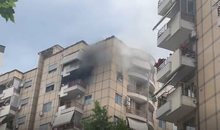
Fire breaks out in a building in Astir
2025-06-02 20:22:46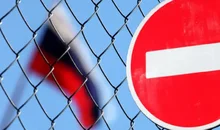
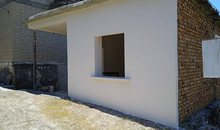

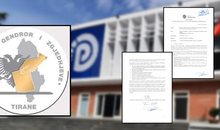

Two women threaten the Saranda prosecutor in her office
2025-06-02 19:09:20
Etna wakes up again, the most active volcano in Europe erupts
2025-06-02 19:00:36


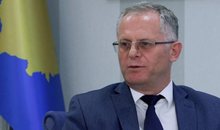
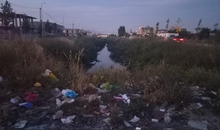
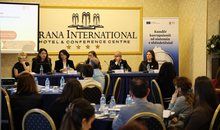
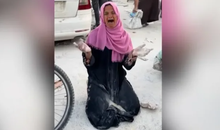
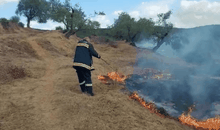
Fire reactivates in Darëzeza forest, firefighting efforts impossible
2025-06-02 17:28:29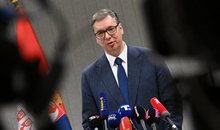
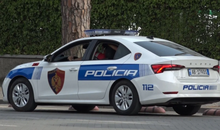
Cultivating cannabis on a plot, 35-year-old arrested in Mirdita
2025-06-02 16:59:27

Switzerland/ Albanian caught with drugs worth over 1 million euros
2025-06-02 16:50:38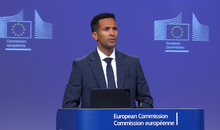
Kosovo-Serbia dialogue meetings resume in Brussels
2025-06-02 16:32:44
The VPN Era in Albania: How the TikTok Ban is "Failing", Video Views Increase
2025-06-02 16:26:36
Mahmut Orhan brings a unique experience with Curious X
2025-06-02 16:19:55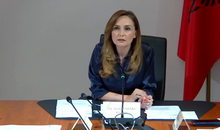

Businesses "forgot" to pay for elections, liabilities reached 4.7 billion lek
2025-06-02 15:50:27
Photo/ Caught with cocaine, Albanian arrested in Britain
2025-06-02 15:31:12
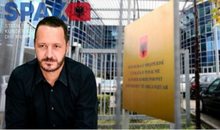

He violently opposed police officers, 39-year-old arrested in Vlora
2025-06-02 15:04:28
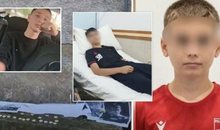

DP demands Rusmal's expulsion from KAS, Logu: It is biased, Begaj's advisor
2025-06-02 14:37:24
Anemia is increasing in the population
2025-06-02 14:32:18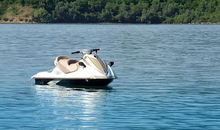

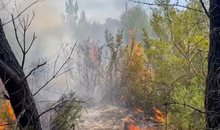
Fires in Darëzezë reactivate, wind spreads flames
2025-06-02 13:57:33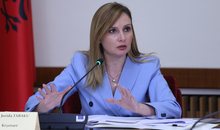

Traffic jams and over 14 thousand fines, Traffic Police take stock of the week
2025-06-02 13:40:51
Eurosceptic Nawrocki wins presidential election in Poland
2025-06-02 13:33:27

Hysaj: Against Serbia with calm and courage, this match is for national pride
2025-06-02 13:14:41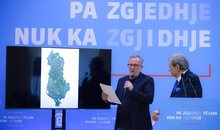
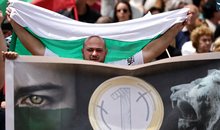
Bulgaria defies chaos and continues on path to euro
2025-06-02 12:53:28


Elected MP, Tedi Blushi resigns from Tirana Municipal Council
2025-06-02 12:29:36
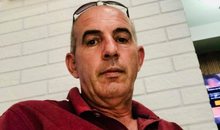
Murder in Tale, the author of the execution of Pjetër Kazaj is identified
2025-06-02 12:07:27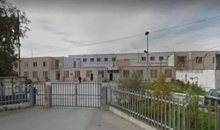
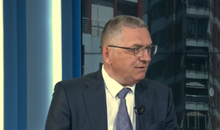
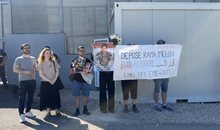
'Justice for Hamid': Activists protest against Gjadri camp
2025-06-02 11:41:26
